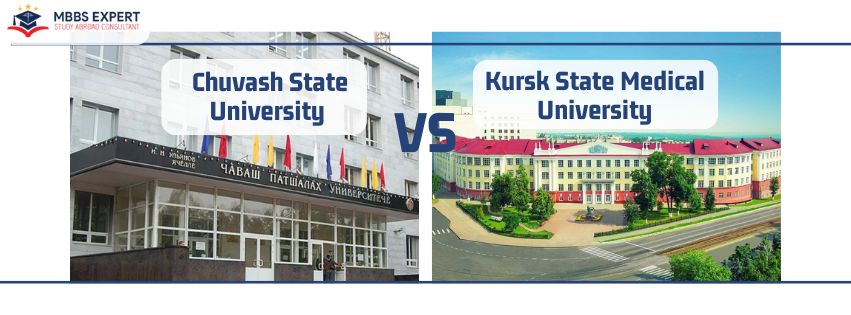Study MBBS at Ingush State University, Russia – Your Gateway to an Affordable Medical Education…
Validity of Russian MBBS Degree
![]()
Validity of Russian MBBS Degree
Introduction
In recent years, pursuing a medical degree abroad has become an increasingly popular option for aspiring doctors. Among the myriad of countries offering quality medical education, Russia stands out as a favored destination. However, a common concern among prospective students is the validity of a Russian MBBS degree in their home country and on a global scale. In this article, we will delve into the intricacies of the validity of Russian MBBS degrees, debunking myths and providing you with a comprehensive guide to make an informed decision.
The Russian Medical Education Landscape
Russia boasts a long history of medical education and is home to some of the world’s most prestigious medical universities. Institutions like the Moscow State Medical University and St. Petersburg State Medical University have garnered international recognition for their rigorous academic programs and state-of-the-art facilities. Russian medical universities offer courses in English, making it accessible to a diverse range of international students.
Myth 1: Russian MBBS Degrees are Not Recognized Globally
One of the biggest misconceptions is that a Russian MBBS degree is not recognized globally. However, this is far from the truth. Russian medical universities are recognized by leading global organizations such as the World Health Organization (WHO), UNESCO, and the Medical Council of India (MCI). This recognition ensures that graduates of Russian medical universities are eligible to practice medicine in numerous countries worldwide.
Myth 2: Russian MBBS Degrees Are Not Recognized in the United States
Another common misconception is that Russian MBBS degrees are not recognized in the United States. While it is true that the process of obtaining recognition in the US can be more challenging, it is not impossible. To practice medicine in the US, graduates of Russian medical schools must follow a specific pathway, which usually involves taking the United States Medical Licensing Examination (USMLE) and fulfilling additional requirements, such as clinical rotations and residencies. Once these requirements are met, Russian MBBS graduates can obtain licensure and practice medicine in the US.
Myth 3: Russian Medical Education is of Lower Quality
Some individuals may question the quality of medical education in Russia, assuming that it is inferior to education in Western countries. However, Russian medical universities uphold high academic standards and are known for their rigorous curricula. Many Russian universities collaborate with international institutions and offer exchange programs, ensuring exposure to a global perspective in medical education.
The importance of accreditation
While the validity of a Russian MBBS degree is not in question, it is crucial to choose a reputable and accredited medical university in Russia. Look for institutions that have been accredited by national and international bodies. For example, in Russia, medical universities should be accredited by the Russian Ministry of Education and Science. International accreditation from organizations like the WHO and UNESCO further strengthens the university’s credibility.
Career Opportunities for Russian MBBS Graduates
Russian MBBS graduates have a wide range of career opportunities both within Russia and internationally. They can choose to practice medicine in Russia, where they can work in state hospitals, private clinics, or even pursue postgraduate specialization. Alternatively, they can explore international job prospects, especially in countries where Russian MBBS degrees are recognized.
Common Destinations for Russian MBBS Graduates
- India: Russian MBBS degrees are widely accepted in India, and graduates can apply for a Foreign Medical Graduates Examination (FMGE) screening test to practice medicine in the country.
- United States: As mentioned earlier, the United States provides a pathway for Russian MBBS graduates to practice medicine after meeting specific requirements.
- United Kingdom: Graduates can apply for the Professional and Linguistic Assessments Board (PLAB) test and the General Medical Council (GMC) registration to practice in the UK.
- Canada: Canadian residents can pursue the Medical Council of Canada Qualifying Examination (MCCQE) to become eligible for medical practice.
- Australia: The Australian Medical Council (AMC) assesses the eligibility of Russian MBBS graduates to practice medicine in Australia.
Challenges Faced by Russian MBBS Graduates
While the validity of Russian MBBS degrees is unquestionable, graduates may face some challenges when pursuing their medical careers abroad. These challenges include:
- Language Proficiency: Proficiency in the language of the host country is often a requirement. For example, English language proficiency is essential for practicing in English-speaking countries like the US, UK, and Australia.
- Additional Examinations: Graduates may need to pass additional examinations specific to the host country, such as the USMLE in the United States.
- Residency and Licensing: Some countries require graduates to complete residencies or internships before obtaining a medical license.
- Credential Evaluation: Graduates may need to have their academic credentials evaluated by credential evaluation services in their host country.
- Cultural Adaptation: Adjusting to a new culture and healthcare system can be challenging for international medical graduates.
Conclusion
In conclusion, Russian MBBS degrees are indeed valid and recognized worldwide. Russian medical universities offer high-quality education and produce graduates who are well-prepared for successful careers in medicine. However, it is essential to research and choose accredited universities and be aware of the specific requirements for practicing medicine in your desired destination country. With the right preparation and determination, Russian MBBS graduates can achieve their goals of becoming competent healthcare professionals on a global scale.





